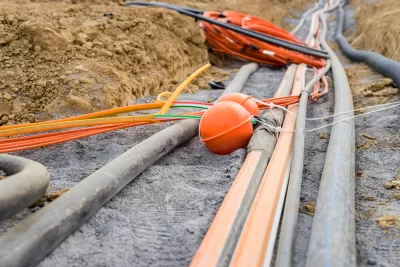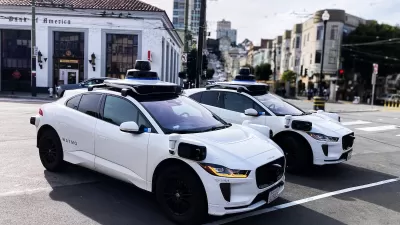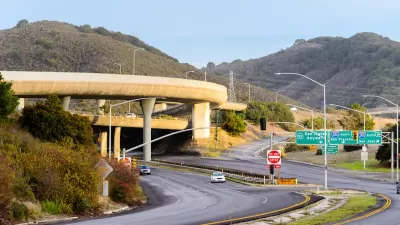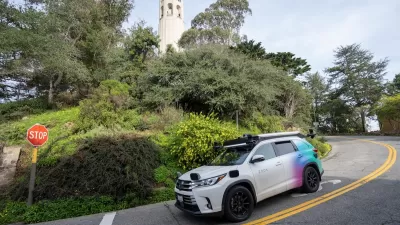The future of mobility depends on having a comprehensive, nationwide broadband network capable of supporting new transportation technologies and regulatory needs.

An article by Rudy Salo highlights the importance of broadband infrastructure, which will receive $65 billion in funding from the Infrastructure Investment and Jobs Act. Far from just home internet speeds, Salo writes that broadband quality affects many aspects of modern life, including transportation. "Better broadband capabilities affect highway operations, including through applications centrally managing signal systems, variable speed limits, and cameras that improve incident response and timing, among others."
According to Salo, broadband is also required to connect autonomous vehicles to each other and the road they're driving on, which calls for a robust system of infrastructure to ensure seamless communication and keep passengers and pedestrians safe in the age of self-driving cars.
Salo also highlights the privacy concerns inherent in the massive amounts of data that users will—and already do—provide to the tech companies that power their phones, cars, and smart home gadgets, cautioning against data monopolies. "If left unregulated, there is danger that control over and use of user data by a combination of big auto and big tech could lead to monopolization and abuse. U.S. consumer-commuters could be at the mercy of conglomerates that abuse their power and limit consumer-commuters to minimal choices or use the data they control to manipulate choices."
FULL STORY: Why The Future Of Transportation Needs A National Investment In Broadband Infrastructure

Alabama: Trump Terminates Settlements for Black Communities Harmed By Raw Sewage
Trump deemed the landmark civil rights agreement “illegal DEI and environmental justice policy.”

Planetizen Federal Action Tracker
A weekly monitor of how Trump’s orders and actions are impacting planners and planning in America.

The 120 Year Old Tiny Home Villages That Sheltered San Francisco’s Earthquake Refugees
More than a century ago, San Francisco mobilized to house thousands of residents displaced by the 1906 earthquake. Could their strategy offer a model for the present?

In Both Crashes and Crime, Public Transportation is Far Safer than Driving
Contrary to popular assumptions, public transportation has far lower crash and crime rates than automobile travel. For safer communities, improve and encourage transit travel.

Report: Zoning Reforms Should Complement Nashville’s Ambitious Transit Plan
Without reform, restrictive zoning codes will limit the impact of the city’s planned transit expansion and could exclude some of the residents who depend on transit the most.

Judge Orders Release of Frozen IRA, IIJA Funding
The decision is a victory for environmental groups who charged that freezing funds for critical infrastructure and disaster response programs caused “real and irreparable harm” to communities.
Urban Design for Planners 1: Software Tools
This six-course series explores essential urban design concepts using open source software and equips planners with the tools they need to participate fully in the urban design process.
Planning for Universal Design
Learn the tools for implementing Universal Design in planning regulations.
Clanton & Associates, Inc.
Jessamine County Fiscal Court
Institute for Housing and Urban Development Studies (IHS)
City of Grandview
Harvard GSD Executive Education
Toledo-Lucas County Plan Commissions
Salt Lake City
NYU Wagner Graduate School of Public Service





























